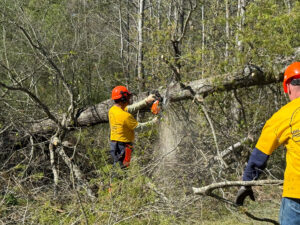A very wise mentor in my life once told me to always meet a kid like you will know them for the rest of your life, because you might.
That has certainly proven true over and over in my life and ministry. I have friends today from those first years of youth ministry that are now peers and close comrades.
I have others for whom I still fill a mentoring role. They come to me when they have a question or a problem, or when they want me to officiate their wedding.
Those relationships represent the most special ones to me today, but none of them would have continued to grow if I had not intentionally stayed in touch with them in college and after.
If you have been active in the lives of teenagers long enough, I hope this is the case with you.
If you are just starting out in ministry, I recommend that you treat your teenage friends like you will know them when they are your age now, and older, because if you are faithful to your calling in their life, you probably will.
Therefore, if your current youth group teens are your friends, you can’t just send them off at graduation with a wish and a prayer. You should plan to stay connected and continue the relationship that you started when they were younger.
In this last installment of the “Transitioning Faith” series, we will discuss how you can initiate a follow-up plan for your friends that will allow you to remain an influence in their lives as they transition out of high school and into the next stage.
So, why do we need a follow-up plan? Here are three reasons for developing a follow-up plan for students who graduate and move away from home.
First, you need a follow-up plan because you love people. No matter how well you knew any particular student in high school, you still love them because Jesus loves them.
You know that this transition is going to be hard and that the new environment, new friends, new responsibilities and important decisions to be made will be difficult to navigate through alone.
So, if for no other reason, you follow up because you are called to love others and help those in need.
Secondly, you follow up because you still have influence on your former students. When someone is a mentor to us, we always see him/her in that role, no matter how old we get.
Until a student gets involved in a new church or campus ministry and feels comfortable with new leaders and mentors, you are still one of the most important mentoring influences in that person’s life.
Take responsibility of that opportunity and continue to offer leadership and guidance.
Thirdly, you need a follow-up plan because they need for you to have one. Even the most well prepared and mature teenagers need someone to check in and provide accountability, especially during the transition.
I believe that if you fail to develop a follow-up plan for your graduated students, your overall transition effort will be incomplete and unfinished.
This is a very important last step in the overall transition process.
I know what you are thinking. You are covered up as it is. You have more on your plate than ever before and, as much as you might love your graduated students, you couldn’t possibly add another ministry responsibility to your long to-do list.
The truth is that a follow-up plan does not need to be extensive; it just needs to be effective.
Developing A Follow-up Plan
The process of developing a follow-up plan for your students the year after they leave your ministry starts by telling them, sometime by the senior recognition day, to expect for you to follow up with them.
This will not only give you the accountability to do it, but it will also let them know to expect it.
The second step is to commit to a five-finger plan of contact. Here is what I mean:
Hold up your hand, and make a fist. Now, as you read these five ways to make contact, release a finger from your grip: Call, Text, Mail, Message and Visit.
Now, depending on how many graduates you have, this might take some help, but lets say that you had 20 seniors graduate. Pick a week during early September and call four kids each day for a week.
Give them each a call on their cell phone, and ask them how things are going. Ask a few questions about community, grades, social life and maybe something about their new friends and roommate.
Depending on your relationship, this call might take a couple minutes or thirty. The important thing is that they know you are there and that you care.
In a week, with just a few minutes each day, you have now called all your past seniors.
Next is to text. Maybe two or three weeks later, text them and let them know you are praying for them at that moment and that you hope to see them soon when they come home.
The third finger is to mail something (you can delegate this step if you need to).
Sometime around mid-term exams, get some people in the church to make cookies and donate some things to put into a care-package for each of your graduated students.
Give them a devotional and include a handwritten letter from someone in the church.
Have them sent off and know that each box will speak loudly about how much you and your church loves them.
The fourth point in the contact plan is to send a message. This can be via email or Facebook, but it should reach out to them and let them know that you look forward to seeing them over the holidays.
Remind them about the Sunday morning schedule for college students at your church, and tell them about the breakfast that you will be planning (we will talk about in a moment).
Last is to visit. This can happen in one of two ways. If you have a few students on a campus within driving distance and you are able to travel there, meet them for lunch and catch up.
But if that is too much trouble, plan to visit them the day or two after they get home for Thanksgiving or Christmas of their freshman year. Catch them at home and invite them to a special time at church where they can see all of their friends and fellowship.
If you take this time to do the five-finger contact plan, you will reach out enough times in one semester to keep the relationship healthy and make it easier for the students to stay connected to you and the church.
Plus, it will make the parents VERY happy and thankful.
The third step in your follow-up initiative, as I alluded to a moment ago, is to plan a breakfast at Sunday School during the holidays for returning college students to make them feel welcome and connected.
This is an easy sell to the parents and other church members to plan and prepare; all you need to do it let the kids know and show up.
You might consider inviting the current senior class to come and serve as an opportunity to see this event and look forward to the next one.
The fourth and final step in your needed follow-up plan is to provide weekly discipleship opportunities for students when they are home. This might mean a college Sunday School class if you do not already have one, with a leader who is called to continue teaching and reaching out to college students. The college-aged students of your church should know that there is a place for them when they come home to visit or move home to work or go to school locally.
After the first semester in college, I give you permission to pull back from your college students, pass the responsibility to someone else so that you can focus on your current group.
All I think you need to do is the five contacts, plan for a breakfast one Sunday morning during the holiday season, and then set up a college contact for future ministry.
You have invested so much in these students throughout high school that this would be a great way to show them, once again, that loving others in Christ means going the extra mile and committing to a continued friendship of community, accountability and love.
The post Transitioning Friends appeared first on Classroom to Classroom.
Source: OMSC2C.org
Transitioning Friends







 by
by